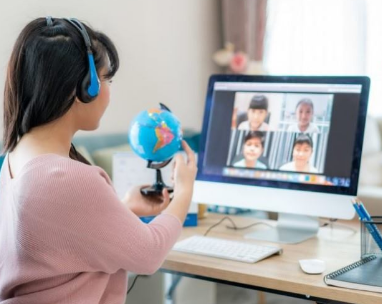In the midst of daily life, it is easy to feel swept along by a river of decisions. From the moment we wake to the time we rest our heads at night, choices abound. Some are simple, like what to eat for breakfast, and others carry deeper weight, such as how to respond to challenges at work or in relationships. Amid this constant flow, meditation offers a gentle anchor. It is a practice that does not promise to solve every dilemma instantly, but it does create a space of calm within which thoughtful decisions can naturally arise.
Meditation cultivates awareness, and awareness is the foundation for making balanced choices. When the mind is crowded with distractions and worries, decisions are often reactive. We may choose out of habit, impulse, or emotional reactivity rather than clarity. Regular meditation encourages us to pause, breathe, and notice what is truly happening within and around us. This simple act of observing can profoundly influence how we approach daily decisions.
The benefits of meditation for decision-making are subtle but powerful. Practicing even a few minutes each day allows us to step back from the immediacy of stress or pressure. It creates a pause between stimulus and response, giving space for reflection. This space is where calm emerges. With a calmer mind, we are better able to recognize our priorities, weigh options thoughtfully, and act in alignment with our values. Over time, these small pauses accumulate, and the quality of our choices naturally improves.
One of the most accessible forms of meditation for enhancing daily choices is mindfulness meditation. This practice involves paying deliberate attention to the present moment, often through focusing on the breath, bodily sensations, or the flow of thoughts. It is not about stopping thoughts but about noticing them without judgment. By developing this awareness, we begin to notice patterns in how we make decisions. Are we acting out of fear or impatience? Do we lean on habit rather than consideration? Mindfulness helps us catch these patterns and choose differently when necessary.
Another helpful approach is reflective meditation. This practice encourages us to gently bring to mind upcoming decisions or recurring challenges and observe our thoughts and emotions around them. By exploring our feelings with curiosity rather than judgment, we gain insight into the motivations behind our choices. This process often reveals solutions that may not have been apparent when the mind was hurried or preoccupied. Reflection through meditation allows decisions to emerge naturally rather than being forced under stress.
Daily life provides countless opportunities to apply the calm cultivated through meditation. Simple choices, like deciding how to respond to a colleague’s comment or choosing whether to indulge in a favorite treat, can benefit from a mindful pause. Even seemingly small decisions influence our well-being and set the tone for the day. By integrating meditation into our routine, we create a mental habit of stepping back and noticing before acting, which leads to decisions that are more aligned with our true intentions.
The calming influence of meditation is also linked to emotional resilience. Life is unpredictable, and not every decision leads to the desired outcome. When we are accustomed to approaching choices from a place of inner calm, we respond to setbacks with steadiness rather than frustration. Meditation teaches us to observe emotions without becoming overwhelmed, which in turn allows us to consider alternatives more clearly and make adjustments as needed. This resilience becomes an invisible support system that subtly improves the quality of our daily choices.
For those new to meditation, starting small is often the most effective approach. A few minutes in the morning or evening can make a noticeable difference. It is helpful to create a quiet space, free from distractions, where you can sit comfortably and focus on your breath or a guiding thought. Consistency matters more than duration, and over time, these short periods of calm accumulate, creating a lasting effect on the way we interact with the world and make decisions.
It is important to remember that meditation does not replace critical thinking or practical evaluation. Rather, it enhances these abilities by reducing the influence of stress and emotional reactivity. A calm mind is more capable of considering options thoughtfully, recognizing long-term consequences, and choosing actions that reflect personal values. Meditation is like tuning an instrument; it does not play the music for you, but it ensures that when you do act, the notes are clear and harmonious.
Another practical technique is to combine meditation with journaling. After meditating, take a few moments to write down decisions you are facing, noting how you feel about each option. This exercise reinforces the insights gained during meditation and provides a reference point for evaluating your choices over time. Seeing patterns in your decision-making can deepen self-awareness and encourage even more mindful actions in the future.
Meditation also encourages patience, which is a vital component of thoughtful decision-making. In a culture that often values speed and immediate results, taking a moment to breathe and reflect can feel counterintuitive. Yet, the ability to pause and consider multiple perspectives often leads to better outcomes than hasty choices. This patience nurtured through meditation extends beyond personal decisions and can positively influence interactions with others, creating a more compassionate and understanding environment.
Ultimately, meditation is a tool for cultivating calm and clarity in daily life. It does not guarantee perfect decisions, but it enhances our ability to approach choices with a steady, thoughtful mindset. Each meditation session is an investment in a calmer, more mindful approach to living. Over time, the benefits ripple outward, shaping not only the decisions we make but also the quality of our experiences and relationships.
Incorporating meditation into daily routines is not about adding pressure or creating another task to complete. It is about recognizing that the space for calm exists within each of us and can be accessed at any moment. Even brief pauses to breathe and observe can shift the trajectory of our decisions, leading to outcomes that feel more aligned with our intentions and values. By nurturing this inner calm, we equip ourselves to navigate life’s complexities with grace and awareness.
In conclusion, meditation is a simple yet powerful way to add calm to daily choices. It fosters awareness, reflection, emotional resilience, and patience, all of which are essential for thoughtful decision-making. Whether through mindfulness, reflective meditation, or combined journaling, these practices create a gentle space where clarity can flourish. With regular meditation, we can move through life with a sense of ease, making choices that reflect our true selves and support a balanced, harmonious lifestyle. Each small decision approached with calm contributes to a life that feels intentional, grounded, and full of quiet satisfaction. Meditation reminds us that the quality of our choices often begins with the quiet moments we create for ourselves.






